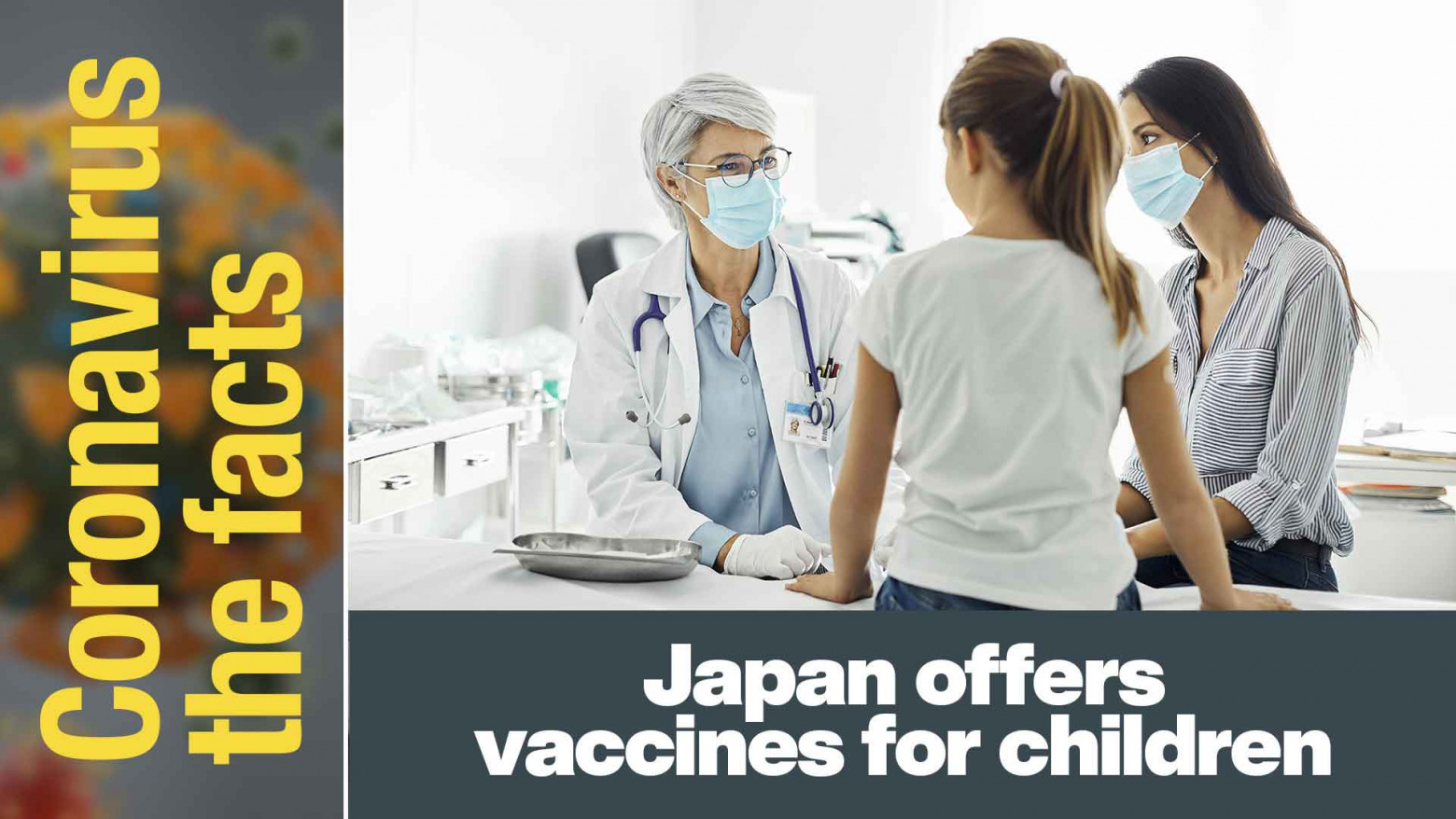This is our series on key coronavirus-related information. Click here to read other installments: #Coronavirus the facts. Find the latest information and answers from experts on everything COVID-19.
High infection rate among children in Japan
Authorities in Japan authorized the public vaccination program for children aged 5-11 on February 21. Many municipalities began offering the shots for that age group from March.
Japan’s infection rate has declined, but infections among children remain high. Children under 10 accounted for about 20 percent of all cases in the first week of March.
Children receive reduced doses
The child vaccine contains one-third of the Pfizer dose given to people aged 12 or older. Children receive two doses with a period of three weeks between them. If an 11-year-old child turns 12 between their first and second dose, the second dose will be the same as the first.
The health ministry is not recommending mass vaccination at schools. Coupons are being sent by municipal governments for shots to be administered at vaccination centers or at individual clinics.
Personal choice
Children are exempt from a legal provision that requires other groups of people to make efforts to get vaccinated. That is because there is not enough data available yet to show how effective the child Pfizer vaccine is against the Omicron variant.
Children with underlying conditions
Children with respiratory and other underlying health problems are being urged to get vaccinated in a bid to minimize their increased risk for severe illness from COVID-19.
Parental consent
Parental consent is required for children. Families are encouraged to have a thorough discussion and consult with their regular doctor before deciding to go ahead.
CDC study
Japan’s health ministry considered a recommendation by the US Centers for Disease Control and Prevention (CDC) that the efficacy of child vaccinations outweighs any risks including side effects. Other countries, including Canada, France, and Israel, have rolled out vaccination programs for children.
In Britain and Germany, only children with a high risk of developing severe symptoms -- and those who share a household with vulnerable people -- can receive vaccines.
In the US, child vaccinations started in November of last year. The CDC has examined 4,249 cases reported as adverse events as of December 19, by which time about 870 million doses had been administered. It remains uncertain if all the reported problems can be directly linked to vaccines.
Of the reported cases, 97.6% were not serious. They included vomiting, fever, headache, fainting, dizziness and fatigue. There were 100 cases regarded as serious.
Inflamed heart muscle affected 11 of the young vaccine recipients, all of whom recovered. Two children with complicated medical histories died, but because their health was in poor condition before vaccination, the fatalities cannot be directly linked.
Balancing the pros and cons
Professor Nakayama Tetsuo, a pediatrician and virologist with Tokyo’s Kitasato University, says the important thing to weigh up is the balance between the merits of vaccines and their possible side effects. He offers a series of points to consider:
- Even if infected children have only mild symptoms, they have to stay at home for a long period, which could expose them to physical and mental hardship.
- Vaccines do not have a 100% success rate in preventing infection, but they do increase the likelihood of children experiencing only mild symptoms.
- When children get vaccinated, there is a reduced chance they will bring the virus home and expose their parents and grandparents.
- Children attending extracurricular activities, including cram schools and sports, have an increased chance of infection.
Nakayama says children with underlying conditions are highly recommended to get vaccinated as they could develop serious conditions if infected. But there is debate even among medical experts as to whether all children should get the shots.
"Some people may think children don’t need to get vaccinated since there have only been a few cases leading to serious symptoms even as overall cases among children increase," says Nakayama. "But it’s important to remember, it’s impossible to know in advance who will develop serious symptoms."
"The vaccine should not be forced on others," he adds. “People should have access to the right information, understand the science, and then make a decision on their own."
*Related article: Should Japan follow the US and vaccinate young children?
https://www3.nhk.or.jp/nhkworld/en/news/backstories/1817/ (Nov.17, 2021)
This information is accurate as of March 16, 2022.
